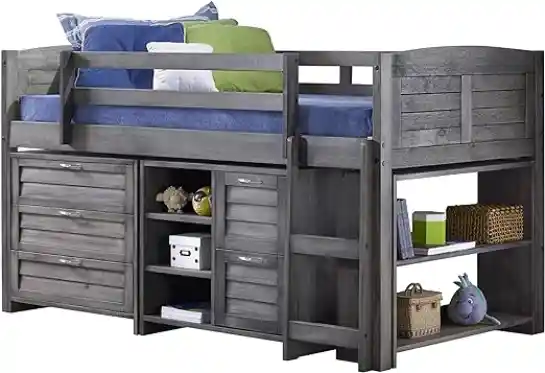Choosing the Ideal Soft Shoes for Problem Feet

In the quest for optimal comfort and relief for problem feet, selecting the right soft shoes is paramount. Foot issues, whether originating from medical conditions or everyday discomfort, necessitate specific attention when it comes to footwear. This comprehensive guide will delve into the intricacies of selecting the perfect soft shoes that cater to various foot problems such as plantar fasciitis, bunions, arthritis, and more. Our aim is to provide invaluable insights to help you make an informed choice.
Understanding Your Foot Problems
To embark on the journey of finding the most suitable soft shoes, it’s vital to recognize and comprehend your particular foot issues. Each condition demands tailored solutions, making it essential to identify your specific needs. Here are some common foot problems and the key considerations for each:
Plantar Fasciitis
Plantar fasciitis involves inflammation of the plantar fascia, the tissue band running along the bottom of your foot. To alleviate plantar fasciitis discomfort, look for shoes that offer:
- Arch Support: Opt for shoes with excellent arch support to reduce strain on the plantar fascia.
- Cushioning: Ample cushioning in the heel and forefoot areas can absorb shock and minimize pain.
- Stability: Shoes with a stable base can help correct gait and reduce stress on the plantar fascia.
Bunions
Bunions are characterized by bony protrusions at the base of the big toe. When choosing soft shoes for bunions, prioritize:
- Wide Toe Box: Look for shoes with a spacious toe box to accommodate the bunion without causing discomfort.
- Soft, Flexible Material: Shoes made from soft and pliable materials can prevent friction and pressure on the bunion.
Arthritis
Arthritis can affect various joints in the body, including those in the feet. For individuals dealing with arthritis, consider the following shoe features:
- Cushioning: Opt for shoes with ample cushioning to reduce the impact on arthritic joints.
- Support: Look for footwear with good arch support and stability to enhance comfort and mobility.
Diabetic Foot Issues
Diabetic individuals need specialized shoes to protect their feet from potential injury and pressure points. Here’s what to look for in diabetic shoes:
- Seamless Interior: Shoes with a seamless interior lining can prevent irritation and reduce the risk of developing sores.
- Roomy Fit: Choose shoes that provide ample room to accommodate orthotics or insoles if necessary.
Key Features to Consider in Soft Shoes for Problem Feet
Regardless of the specific foot issue you’re addressing, certain features should be prioritized when selecting soft shoes. These features include:
Arch Support
Supportive arches are crucial for maintaining proper foot alignment and reducing strain on the arch of the foot. Look for shoes with built-in arch support or the option to insert custom orthotics for enhanced support.
Cushioning
Ample cushioning, especially in the heel and forefoot areas, helps absorb shock with each step, reducing discomfort and fatigue. Select shoes with responsive cushioning to maximize comfort.
Wide Toe Box
A wide toe box ensures that your toes have sufficient room to move without being cramped or compressed. This is particularly essential for individuals with bunions or conditions requiring extra toe space.
Flexibility
Flexible shoes adapt to the natural movement of your feet, reducing strain and discomfort. Choose soft shoes that allow your feet to flex and bend as you walk.
Breathability
Breathable materials promote airflow within the shoe, helping to prevent moisture buildup and maintain foot hygiene. This feature is especially important for individuals with conditions that make them susceptible to foot perspiration.
Adjustability
Shoes with adjustable features such as straps, laces, or Velcro closures provide a customizable fit, accommodating variations in foot swelling and shape throughout the day.
Our Top Recommendations
- [Brand X] Orthopedic Soft Shoes: These shoes offer exceptional arch support and cushioning, making them an excellent choice for individuals with plantar fasciitis. They also have a roomy toe box for added comfort.
- [Brand Y] Bunion-Friendly Soft Shoes: If you have bunions, [Brand Y] offers soft shoes with a wide toe box and soft, flexible materials to minimize discomfort and pressure.
- [Brand Z] Arthritis Relief Soft Shoes: For those dealing with arthritis, [Brand Z] provides soft shoes with superior cushioning and support, designed to reduce joint pain and enhance mobility.
- [Brand W] Diabetic-Friendly Soft Shoes: If you have diabetes, consider [Brand W] for their diabetic-friendly shoes with a seamless interior and a roomy fit to safeguard your feet.


Conclusion
Selecting the right soft shoes for problem feet is a crucial step toward enhanced comfort and well-being. By understanding your specific foot issues and focusing on key features such as arch support, cushioning, wide toe boxes, flexibility, breathability, and adjustability, you can make an informed choice. Our top recommendations from [Brand X], [Brand Y], [Brand Z], and [Brand W] offer a range of solutions tailored to different foot conditions. Remember that a visit to a podiatrist or orthopedic specialist can provide further guidance in finding the perfect soft shoes for your needs. Prioritize your foot health and comfort by making the right choice in soft shoes today.

